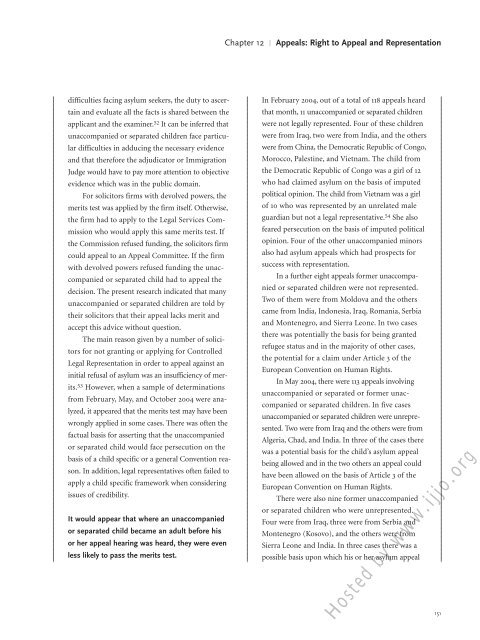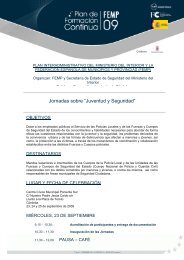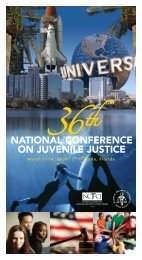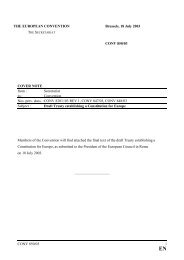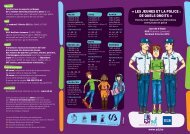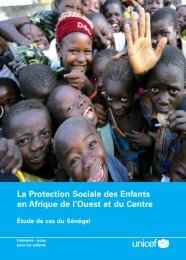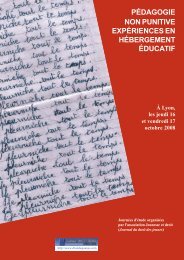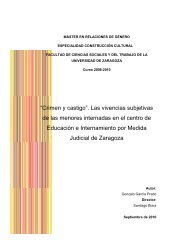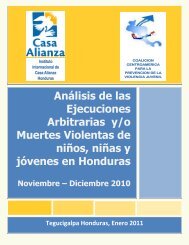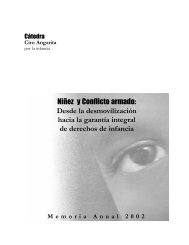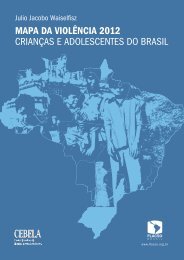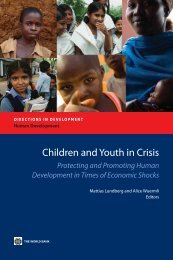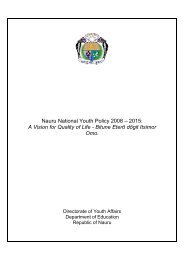Hosted by www.ijjo.org
Hosted by www.ijjo.org
Hosted by www.ijjo.org
You also want an ePaper? Increase the reach of your titles
YUMPU automatically turns print PDFs into web optimized ePapers that Google loves.
Chapter 12 | Appeals: Right to Appeal and Representation<br />
difficulties facing asylum seekers, the duty to ascertain<br />
and evaluate all the facts is shared between the<br />
applicant and the examiner. 52 It can be inferred that<br />
unaccompanied or separated children face particular<br />
difficulties in adducing the necessary evidence<br />
and that therefore the adjudicator or Immigration<br />
Judge would have to pay more attention to objective<br />
evidence which was in the public domain.<br />
For solicitors firms with devolved powers, the<br />
merits test was applied <strong>by</strong> the firm itself. Otherwise,<br />
the firm had to apply to the Legal Services Commission<br />
who would apply this same merits test. If<br />
the Commission refused funding, the solicitors firm<br />
could appeal to an Appeal Committee. If the firm<br />
with devolved powers refused funding the unaccompanied<br />
or separated child had to appeal the<br />
decision. The present research indicated that many<br />
unaccompanied or separated children are told <strong>by</strong><br />
their solicitors that their appeal lacks merit and<br />
accept this advice without question.<br />
The main reason given <strong>by</strong> a number of solicitors<br />
for not granting or applying for Controlled<br />
Legal Representation in order to appeal against an<br />
initial refusal of asylum was an insufficiency of merits.<br />
53 However, when a sample of determinations<br />
from February, May, and October 2004 were analyzed,<br />
it appeared that the merits test may have been<br />
wrongly applied in some cases. There was often the<br />
factual basis for asserting that the unaccompanied<br />
or separated child would face persecution on the<br />
basis of a child specific or a general Convention reason.<br />
In addition, legal representatives often failed to<br />
apply a child specific framework when considering<br />
issues of credibility.<br />
It would appear that where an unaccompanied<br />
or separated child became an adult before his<br />
or her appeal hearing was heard, they were even<br />
less likely to pass the merits test.<br />
In February 2004, out of a total of 118 appeals heard<br />
that month, 11 unaccompanied or separated children<br />
were not legally represented. Four of these children<br />
were from Iraq, two were from India, and the others<br />
were from China, the Democratic Republic of Congo,<br />
Morocco, Palestine, and Vietnam. The child from<br />
the Democratic Republic of Congo was a girl of 12<br />
who had claimed asylum on the basis of imputed<br />
political opinion. The child from Vietnam was a girl<br />
of 10 who was represented <strong>by</strong> an unrelated male<br />
guardian but not a legal representative. 54 She also<br />
feared persecution on the basis of imputed political<br />
opinion. Four of the other unaccompanied minors<br />
also had asylum appeals which had prospects for<br />
success with representation.<br />
In a further eight appeals former unaccompanied<br />
or separated children were not represented.<br />
Two of them were from Moldova and the others<br />
came from India, Indonesia, Iraq, Romania, Serbia<br />
and Montenegro, and Sierra Leone. In two cases<br />
there was potentially the basis for being granted<br />
refugee status and in the majority of other cases,<br />
the potential for a claim under Article 3 of the<br />
European Convention on Human Rights.<br />
In May 2004, there were 113 appeals involving<br />
unaccompanied or separated or former unaccompanied<br />
or separated children. In five cases<br />
unaccompanied or separated children were unrepresented.<br />
Two were from Iraq and the others were from<br />
Algeria, Chad, and India. In three of the cases there<br />
was a potential basis for the child’s asylum appeal<br />
being allowed and in the two others an appeal could<br />
have been allowed on the basis of Article 3 of the<br />
European Convention on Human Rights.<br />
There were also nine former unaccompanied<br />
or separated children who were unrepresented.<br />
Four were from Iraq, three were from Serbia and<br />
Montenegro (Kosovo), and the others were from<br />
Sierra Leone and India. In three cases there was a<br />
possible basis upon which his or her asylum appeal<br />
<strong>Hosted</strong> <strong>by</strong> <strong>www</strong>.<strong>ijjo</strong>.<strong>org</strong><br />
151


